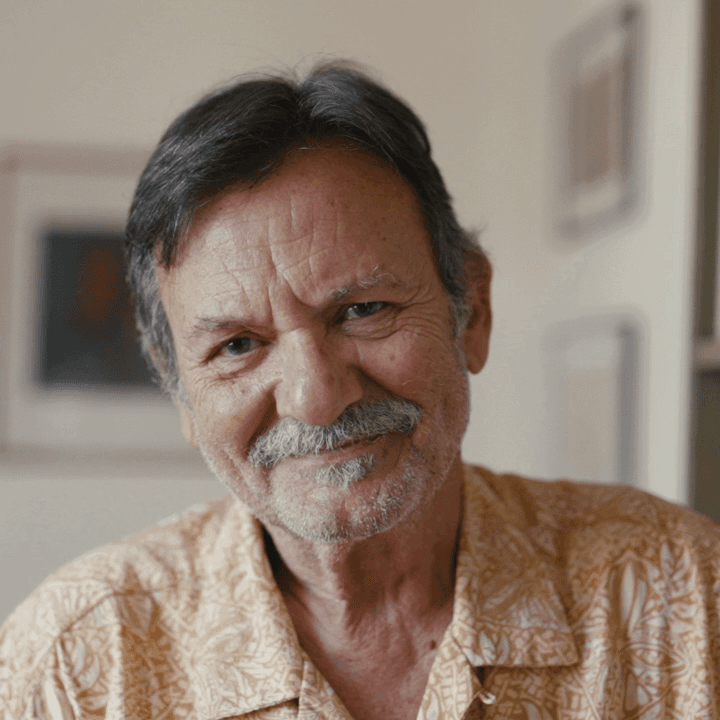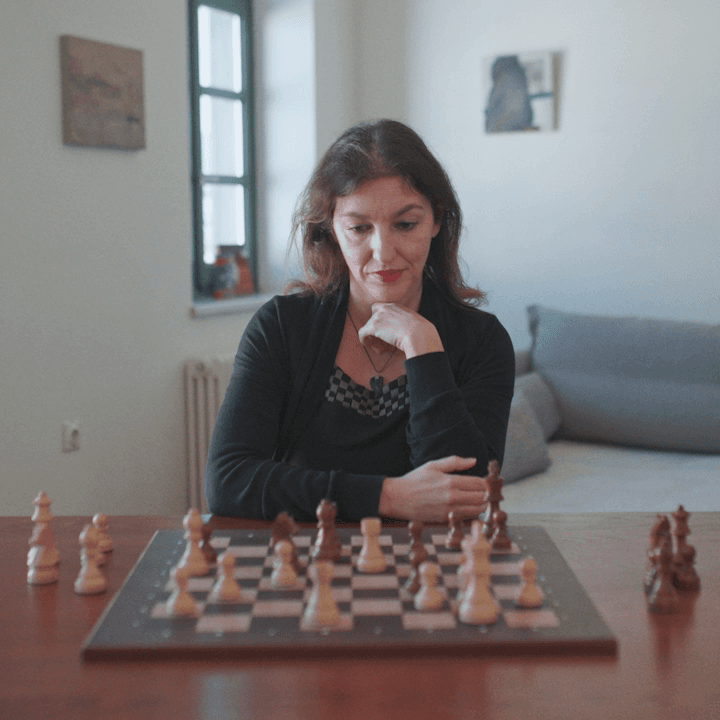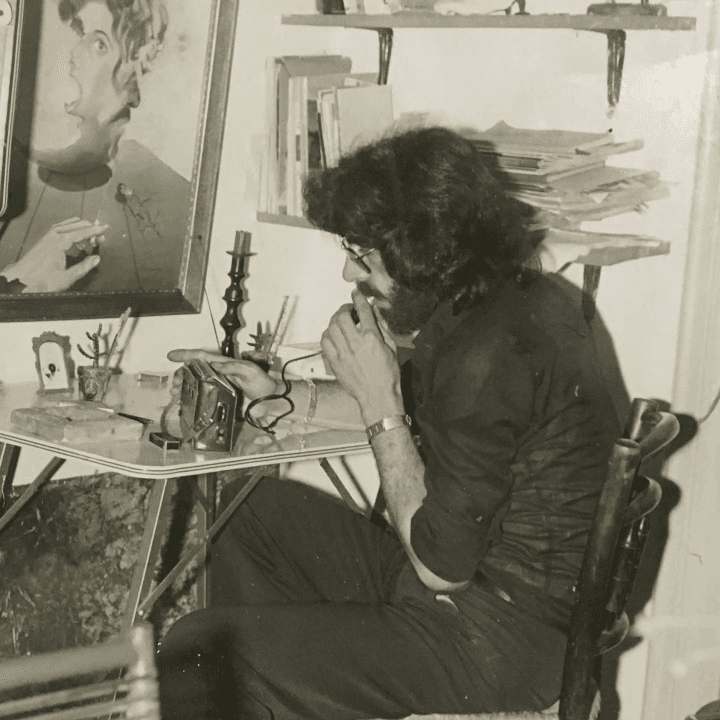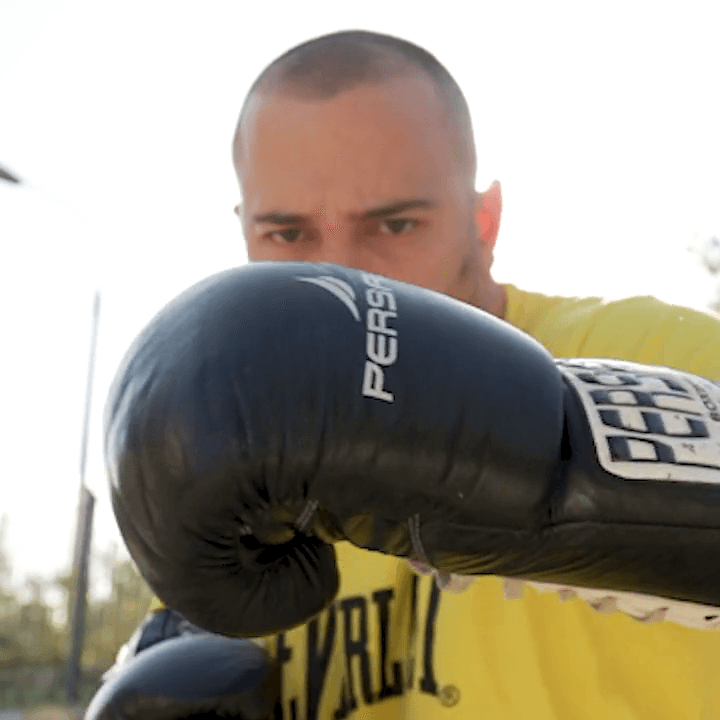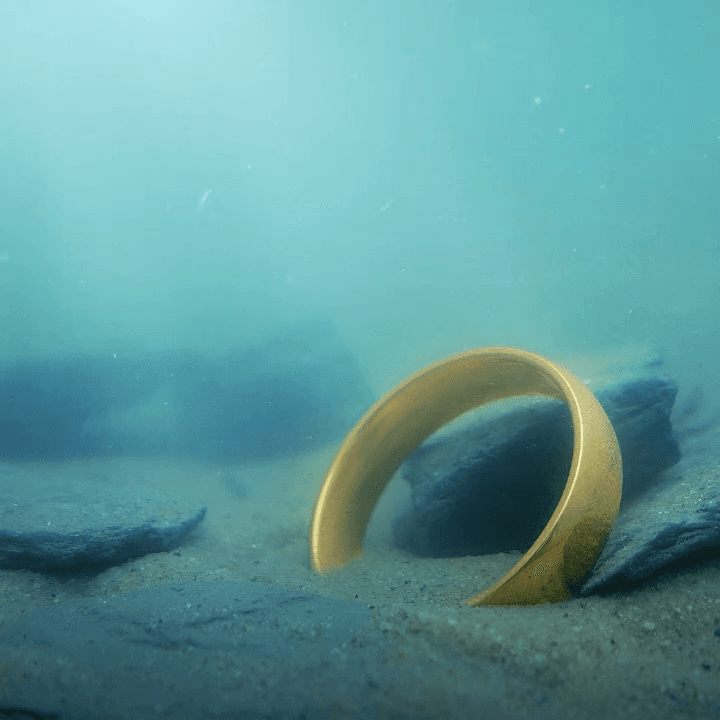I remember, I was in Serres, at my uncles’. It was Christmas, and I was listening to my cousin’s mp3 player – I didn’t have one yet, I was young, so I was listening on his, who was older – and I happened to come across a song by Blind Guardian; that song was also called Lord of the Rings. Still listening to it, I went to my cousin, and I said, ‘What’s this I’m listening to? I really like it! Tell me more about it’. He himself happened to be reading the books. I basically snatched the first one from him and started reading, too.
From then on, on a daily basis, the various books I read, the music I listen to, the films I watch, are either directly related to Tolkien, or have been influenced by him, are something similar. Generally, every day always has a little Tolkien in it, in one way or another.
There was a quite long time, from around 2016 to the middle of ‘19–‘20 I would say, when I struggled with depression. It was a very difficult time. There were better and worse phases, let me put it like that, but definitely fantasy, especially Tolkien, is among the things that helped me deal with those moments. Every day, I tried to read a little, to become – you know – one of the characters, to be on the side that was fighting, the side of the good, the side of the light. And I believe that, to a great extent, it was those things that helped me survive that difficult period.
At that time, I think I identified more with Frodo as a character, because, you know, he had – in inverted commas – the ‘weight’ on his shoulders. He had to travel and throw [the ring] into Mount Doom, to find peace... let me put it like that. And so, I felt that I was the ring bearer at that time, and it had definitely possessed me. But I would say that my ‘Sam’ was possibly the professor himself and his work. Tolkien himself helped me get through that time.
Of course, one of my favourite characters, especially then, was Feanor, who, generally, did not have a good reputation... let’s say. He was of the race of Noldor elves; he made the Simarils, which were stones that had a magic light inside them. As he loved the gems very much, he didn’t want to let them out of his sight. And along comes Melkor, the bad guy of the story. He goes and kills Feanor’s father, takes the jewels, and escapes to Middle Earth, because, at the moment we are in Valinor, the land of the gods. Then Feanor, together with his sons, makes a terrible oath – his seven sons also swear – that he will not rest until he has got the Simarils back, and that he will hunt Morgoth [Melkor] to the ends of the known world and beyond.
In his efforts to get from the land of the gods to Middle Earth, he asks another race of elves to give him their boats. When the Teleri say ‘no’, a great massacre begins, during which he feels nothing and tries to take the ships by force. In fact, once he takes the boats across, instead of sending them back to bring over the others, he burns them, and a large part of the population of Noldor who had taken the oath were forced to cross the frozen lands, where many of them died.
At that time, he represented my own psychological state to a great extent, as a character in general. Then – I don’t know – I had a lot of negative emotions inside me. I had a whole lot of anger, and Feanor was a character who externalised that, which, of course, was catastrophic both for himself and others. Fortunately, I managed not to do that. I mean, I didn’t let it out, didn’t externalise my anger. And I’d say that the character of Feanor demonstrated this precisely. He showed me how not to be, what not to do. This is why these characters are interesting: the characters who have an internal battle going on, who have problems and are trying to face them. Personally, at least for me, a white knight on a white horse, says nothing.
Then, I gradually began psychoanalysis and psychotherapy. I remember, there were times in psychoanalysis that I talked about Tolkien’s characters; I would go in and want to talk about Tolkien. I would have read a chapter and discussed each of the characters, why I like this one, why I like the other. So, to a significant degree, Tolkien helped me understand myself better.
It’s true that my favourite chapter is very tragic. It’s ‘The Battle of Unnumbered Tears’. You can get if from the title. It was a battle where the forces of good – let’s call them that – believed that they would be victorious against Morgoth; that they were strong; they were ready for everything to go their way. Ultimately some men betrayed the forces of good, and the outcome was tragic; the good side lost a big part of their army. You know what excited me about this specific chapter? Sometimes things don’t go perfectly, but, however they turn out, good or bad, we can always live as epically as we can. Let me put it like that.
In that chapter, there are two of my favourite phrases. One of them was shouted by the forces of good when they see an elven king and his army arriving unexpectedly, and they shout, ‘Auta i lómë!’, which translates as ‘The night is passing’. And the other, later on, when everything is almost finished and a heroic king of men, Hurin, has been left alone and exhausted to fight tens of orcs who are trying to take him hostage, he shouts, ‘Aurë entuluva!’, which means, ‘Day shall come again’. So, generally, the idea is that – you know – inside us, the light is battling the darkness. What I try to do, personally, is to let the light win, as much as possible. It doesn’t always happen, but that’s what I try for, at least.
And, with enough effort, I want to be able to say that ‘today is just fine’. It was a wonderful realisation. I go and sit down opposite my psychotherapist, she looks at me, I look at her. I smile, she smiles, and says to me, ‘All good? How’s it going?’ ‘Good. Good. All good’. I would say we just talked about this and that, to a great extent. The hour finishes, it goes quickly, and she says to me, ‘To tell you the truth Dimitris, I think’, she says, ‘there isn’t really a reason for you to come again’. And, you know, that was a really, really beautiful moment. And so, I go out happy. I get in the car – my mother had come to get me that day – and I say to her, ‘Mum, I’m not coming again; I think I’m OK’. And I never did go again from that day on.
About a year ago, I changed my favourite character, because I came out of that state of mind. I chose Amandil. He was one of the men who had remained faithful to the elves and Valars, Tolkien’s gods. And ultimately, he essentially sacrificed himself, trying, even to the last, to save his home and the others. I embraced that character, I felt he was closer to me. He expresses me now.
In 2019, I went on a trip of about ten days to England. One of the things I wanted to do was to go to the cemetery where he is buried. When I got to the grave, I sat next to it for a while. Generally speaking, the cemeteries in Britain are often very beautiful. It’s in the Gothic style, the Gothic style surrounded by greenery, with benches, with trees... It’s very beautiful, it doesn’t even seem like a cemetery; you forget that it is. It was very emotional. I wrote a message and left it there, on the side. I think it was a simple ‘thank you’, if I remember correctly; I don’t remember writing anything more. And it is something I take with me, and it guides me.


